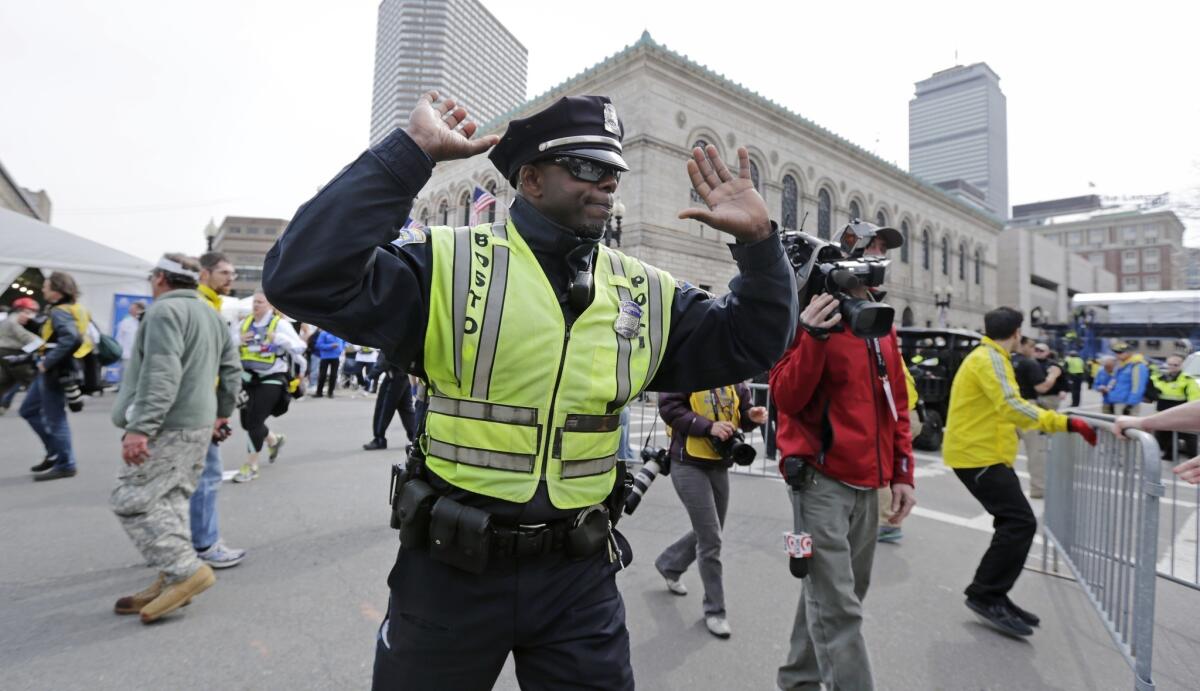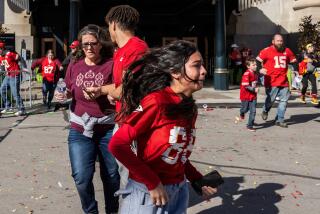Coming to terms with terror

Commenting on the horrific explosions in Boston, President Obama insisted Tuesday that “the American people refuse to be terrorized.” Brave words, but also accurate ones. In the years since 9/11, residents of this country have acquiesced in an array of inconveniences and encumbrances, hoping they are contributing to their own protection but often suspecting that this or that precaution is either arbitrary or useless. But even as they alternate between stoicism and resentment, Americans have continued to travel, socialize and take part in communal celebrations such as the Boston Marathon and New Year’s Eve festivities in Times Square.
That won’t change after Monday’s attacks. Initially, citizens will be more circumspect, just as law enforcement will ramp up surveillance. In time, however, behavior will revert to normal — or at least the new normal of metal detectors, airport searches, the deployment of explosive-sniffing dogs at large gatherings and the placement of ugly obstructions in front of picturesque public buildings.
None of this is to minimize the horror of what happened in Boston on Monday. Three people died, including 8-year-old Martin Richard, whose father was competing in the marathon, and 176 people were injured, some seriously. The bombs — packed with shrapnel, including pellets and “nail-like” objects designed to maim their victims — profaned Patriots’ Day, a state holiday commemorating the American Revolution, and terrorized an event that is as much a civic celebration as an athletic event. In that sense, they were reminiscent of the bomb planted at the 1996 Olympics in Atlanta by Eric Rudolph, who said he wanted “to confound, anger and embarrass the Washington government in the eyes of the world for its abominable sanctioning of abortion on demand.”
FULL COVERAGE: Boston Marathon attack
It is still unknown whether the perpetrator of Monday’s attacks is a right-wing extremist such as Rudolph or Oklahoma City bomber Timothy McVeigh; a foreign terrorist; an American supporter of a foreign group; or an individual acting out some intense personal — and possibly apolitical — grievance. The design of the “pressure cooker” explosive devices suggests to some investigators that they are of domestic origin, but that doesn’t mean they weren’t employed by a foreign terrorist or an American sympathetic to a foreign group. For now, speculation reigns, though not as angrily and irresponsibly as it has after some previous incidents.
On Monday we were reminded that some individuals are willing to settle scores by shedding the blood of innocent men, women and children. That fact must inform the way we go about our lives, but we can’t allow it to paralyze us.
More to Read
A cure for the common opinion
Get thought-provoking perspectives with our weekly newsletter.
You may occasionally receive promotional content from the Los Angeles Times.






